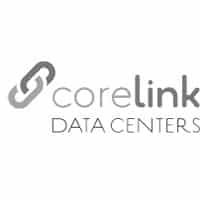Computers are at the center of many successful business operations, and there are no signs that this trend will be abating any time soon. Because computers are so integral to the business world, it’s imperative that precautions are put in place to ensure that daily operations can continue unimpeded, no matter what may occur.
A power distribution unit, also known as a PDU, is one such technology intended to simplify businesses operating via large-scale computer networks. This is especially true of things like data centers, which often contain an array of devices necessary to perform key operations. A PDU is tasked with providing power to these many disparate devices from a central location. As a result, PDUs must contain certain protections to ensure all devices remain powered sufficiently for everyday functions to occur.
What Is a PDU?
As briefly mentioned above, a PDU is responsible for distributing electrical power to a number of different devices. As a PDU allocates power usage, it also ensures that unexpected power outages do not damage important hardware or result in a loss of pertinent company data.
While PDUs can be used in a number of industries, they are most commonly seen in data centers. This is because data centers are often comprised of numerous computer devices, all of which require a reliable source of power to maintain integral daily operations. A PDU can efficiently power many devices concurrently, while also ensuring that these devices remain in operation in the event of an outage.
Types of PDUs
- Basic Units – The ubiquitous power strip that is now a staple of every home and office is merely a simplified version of a PDU. Power strips serve as a centralized location to disperse electricity to a number of devices. Many power strips even offer protection to devices in the form of surge protectors, which can cause electrical items to shut down before being damaged by an unanticipated spike in power. While other types of PDUs are far more sophisticated, the principle remains the same.
- Rackmount Units – Rackmount PDUs also disperse electricity to many different devices. However, these larger models can often accomplish other tasks which makes operation safer and more efficient. Unlike standard power strips, a rackmount PDU can allow for intelligent power dispersal. This permits power to be used more efficiently by connected devices, which not only improves operation but also cuts back on wasted energy. A rackmount model can also be accessed remotely, making it beneficial for companies who may have offices spread out over a great distance.
- Cabinet Units – Cabinet PDUs are most often found in data centers, which often contain a large amount of hardware. As a result, cabinet PDUs are typically far more complex than their less-powerful counterparts. A cabinet PDU may require many sources of high-current power supplies in order to successfully maintain many different devices. Cabinet PDUs also include things like circuit breakers, as well as control panels dedicated to monitoring power distribution.
How Do PDUs Work?
Electrical currents are supplied to the PDU, which then distributes this power to devices accordingly. In some cases, PDUs can be accessed remotely, which allows the operator to change the way power is distributed to different devices. This can be helpful in the event that the number or type of electronic devices changes, or as a means to deal with impending outages or other issues that may affect computer hardware.
PDUs can also differ in the amount of power they can handle, ranging from smaller units to those tasked with allocating power to numerous devices. Many PDUs include means of mitigating the effects of large-scale power outages, which is useful for both protecting data, as well as vital computer equipment.
Who Needs PDUs?
While many businesses can make use of some form of PDUs, for certain industries these devices are crucial. The following are just a few industries and organizations that require PDUs as a part of daily operations:
- Government Entities/Organizations – Government-run computer networks need to be accessible at all times. For this reason, proper allocation of power is crucial maintaining reasonable operation.
- Schools – Schools often entail a large bank of computer systems necessary for day-to-day assignments. As a result, a centralized source of power can be a smart choice for keeping all devices up and running, no matter the demand.
- Hospitals – As technology advances, so do the means in which patients are treated for health issues. Because many hospitals are now utilizing computerized systems, a reliable power source is important for maintaining the health and well-being of patients.
- Brokerage/Trading Firms – PDUs can ensure that workstations crucial to accessing market information remain online no matter what. Even a few hours of down time can result in financial devastation for a brokerage firm.
Benefits of PDUs
PDUs can be beneficial to companies for a number of reasons. While they primarily allow for a more efficient dispersal of power to many devices, they can also serve as a fail-safe in the event that power is lost unexpectedly. PDUs can also be helpful for those companies that wish to closely monitor their power consumption. Thanks to the monitoring features included within many models, operators can devise ways to more efficiently use allotted power, resulting in far less waste. In many cases, PDUs offer convenience and efficiency in one package.
Whether you are the helm a large-scale data center or a small business, a PDU can prove extremely useful in a number of circumstances. For those companies that rely heavily on technology for daily functions, PDUs are a natural choice.




























